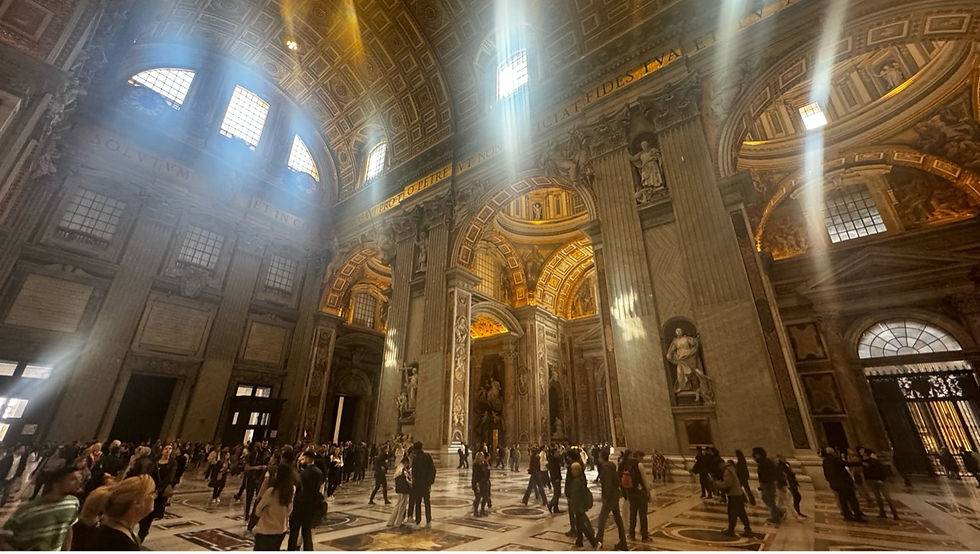The Nature of Church
- Mar 27, 2024
- 2 min read

Recently I was blessed to travel to Italy and tour the countryside. Along the way I visited many basilicas, cathedrals, and churches. What struck me most of these magnificent buildings from the Middle Ages and Renaissance, was the sheer size and grandiose architecture and art adorning them. I tried to picture people from the area walking across the piazza or square, and this building looms so large over them. Even the doors are often 20 or so feet tall. Everything is built to impress the position, power, and authority of the Church over the area and the people within it.
The rules of who can enter and where you can go within the building were numerous back when these structures were constructed. If you were not baptized, then you would not enter. Within the sanctuary there are distinct chapels often built for the wealthy and powerful families. There are stark divides between the front alter and the secretive back area for the clergy and important positions within the Church. The walls and art are built to visually and clearly separate the worshipers and the priests. There is a distinct sense the clergy were in charge and the way to connect with the Lord.
I contrast this with most modern churches and the nature of our personal relationship with God, encouraged by our Lutheran faith and Church. From the time of Luther on, no longer was our relationship required to be through the Pope, but instead a deep and personal connection with our loving Father directly. We can confess our sins and repent not in a booth but wherever and whenever we are communicating with God.
The very welcome way we encourage participation in church life around St. Stephen's, both is our daily missions, and in the important sacraments such as Communion, are so appreciated. The world is a turbulent place where many feel outcast. The world needs the saving grace promised us by Jesus. People don’t need to be impressed with a golden sanctuary anymore. We are to be the beacon of hope and love to make our community better, and build relationships with each other, and our loving Father.
Michael Farthing
































Comments